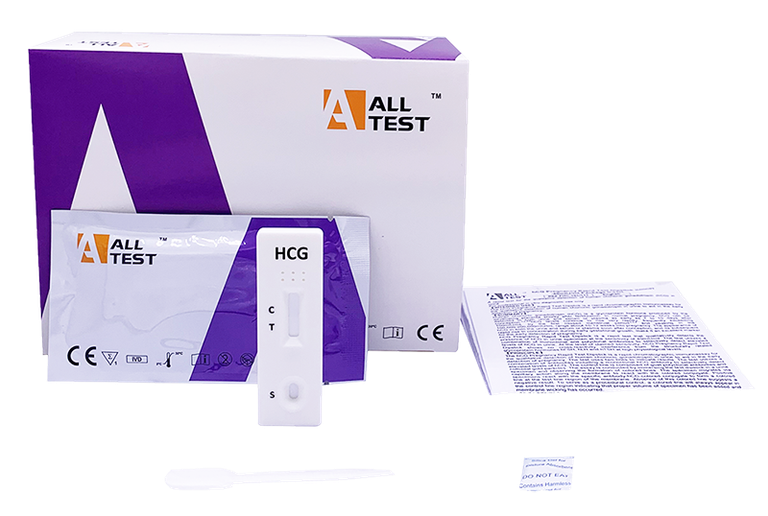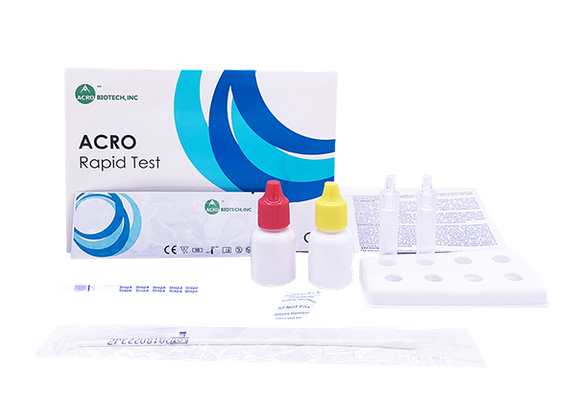STANDARD M10 C. difficile
STANDARD M10 C. difficile is a multiplex real-time RT-PCR test intended for use with STANDARD M10 system for the qualitative detection of bacterial DNA from Clostridioides difficile (toxin B gene (tcdB)) in unformed (watery or soft) stool specimens collected from patients with symptoms.

Generally
The STANDARD M10 C. difficile test is an automated in vitro diagnostic test for qualitative detection of nucleic acid from Clostridioides difficile. STANDARD M10 C. difficile cartridge contains bacterial DNA extraction buffers and Real-Time PCR reagents for the in vitro qualitative detection of tcdB in unformed stool specimens.
STANDARD M10 tests are used in combination with STANDARD M10 system consisting of a console (user interface) and one or more modules (cartridge analysis function). The system is a modular random access platform which can be easily scaled with up to 8 modules, offering a customized throughput.
Easy and simple test workflow
- All-in-one cartridge (nucleic acid extraction and PCR amplification)
- Minimal hands-on time, results available in 47 min
- Intuitive touch screen user interface
- Automated result interpretation, amplification curves provided
STANDARD M10 benefits
- Versatile and flexible solution ― suitable for any healthcare settings
- RT-PCR technology in one system
- Multiplex capability, with up to 11 targets + internal control
- Random access, scalable with up to 8 modules
Technical data
Products available | SD BIOSENSOR STANDARD M10 C. difficile Test |
Use | For in vitro diagnostic use |
Method | Real-time PCR amplification |
Sample type | Unformed stool |
Instrument information | 155067 SD BIOSENSOR STANDARD M10 CONSOLE |
Time to result | 47 minutes |
Reading of the result | Automatic |
Storage | Between +2 and +28 oC |
Sensitivity | 98.52% (133/135, 95% CI: 94.75% - 99.82%) |
Specificity | 98.49% (196/199, 95% CI: 95.66% - 99.69%) |
Transportation | Between +2 and +28oC |
Additionally needed | STANDARD M10 instrumentation, STANDARD M10 Stool Pretreatment Kit, Stool collection vial |
Country of origin | South Korea |
Registration | CE IVDD |
About Clostridioides difficile
Clostridioides difficile (C. difficile) is a spore-forming, gram-positive anaerobic bacillus that is the leading cause of approximately 20 ~ 30% of antibiotic-associated diarrhea and is the most common cause of healthcare-associated infections. In other words, it is responsible for various forms of antibiotic-associated diarrhea, which can be activated by antibiotic treatment or disruptions to the normal balance of gastrointestinal flora. While nearly all antibiotics carry a risk of contributing to this infection, it is particularly common in patients using antibiotics such as fluoroquinolone, clindamycin, carbapenems, cephalosporine, and penicillins. CDI (Clostridioides difficile infection) symptoms range from mild diarrhea to severe pseudomembranous colitis.
C. difficile produces two kinds of exotoxins:, toxin A and toxin B, both of which lead to diarrhea and enteritis. These toxins, encoded by the tcdA and tcdB, are cytotoxic and proinflammatory. In cases where the toxin B(tcdB) gene is present, most Clostridioides difficile strains are identified as toxigenic. Therefore, it suggests that toxin B may have more systemic effects than previously believed. This pathogen is capable of causing disease that could be severe or fatal if not promptly diagnosed and treated.


